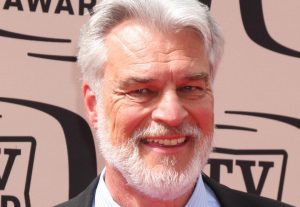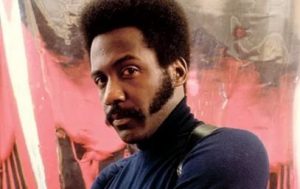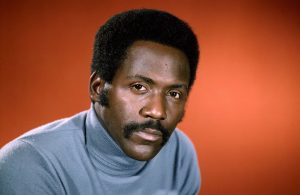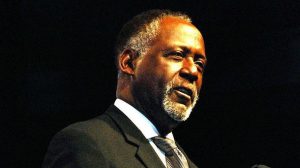There are superstars and then there is Rajinikanth, the most glittering perhaps in the Indian cinematic firmament whose demi-god status has spawned an entire ‘Rajini culture’ of jokes, devoted fandom and box-office success that is almost always more about him than his film.
Rajinikanth, who was on Thursday named for the Dadasaheb Phalke Award, the government’s highest honour for Indian cinema, is cast in classic matinee idol mould with stories of mass adulation on a scale rare for even the biggest stars.
With his balding pate and greying hair, the 70-year-old is unlike many of the others though and rewrites many rules of traditional showbiz. The dichotomy between the reel Rajini with exaggerated, stylised movie star mannerisms and the real man with no apparent pretensions is sharp – and quite unique.
That the dazzling rise, from coolie and bus conductor to the ever-reigning predominantly South star of films such as “Enthiran”, “2.0” and “Kaala”, could be the stuff of the cheesiest movie script only adds to the mystique. People may or may not have seen his films but are most certainly familiar with the frenzy that surrounds his releases.
Fans lining up overnight in serpentine queues outside theatres for a first day-first show come rain, summer or winter, bathing his posters in milk, showering his cutouts with flowers and chucking coins on screen were par for the course for a Rajini film. This of course in the pre- pandemic era. Popularly called ‘Thalaivar’ (leader in Tamil), the very announcement of a new film or his birthday is regarded as nothing short of a festival for his fans, from Japan (where he is known as Baba and has a cult following) to Sri Lanka.
His films may sometimes receive a lukewarm reception from critics, but the ‘Rajini’ phenomenon ensures the numbers at the box office, and has done so for close to five decades.
Born Shivaji Rao Gaekwad in Bengaluru, Mysore State (present day Karnataka) in a Marathi family, Rajinikanth was the youngest of four siblings – two brothers and a sister – and grew up speaking Marathi and Kannada.
A sports enthusiast since his school days, Rajinikanth participated in plays at the Ramakrishna Math in Bengaluru.
Following his father’s retirement in 1956, the family moved to the suburb of Hanumantha Nagar in Bengaluru.
That he got a job as a coolie and then a bus conductor with the Bangalore Transport Service (BTS) before deciding to take up an acting course at the Madras Film Institute at the encouragement of friend and co-worker Raj Bahadur is part of the legend, a fabled story much told.
On the advice of noted Tamil director K Balachander, Rajinikanth quickly took to learning Tamil and made his debut in the filmmaker’s 1975 movie “Apoorva Raagangal”.
The real breakthrough came with next year’s “Moondru Mudichu”, another film directed by Balachander, with whom the actor went on to forge a longstanding and successful relationship.
After a brief phase of portraying antagonistic characters, he starred in positive roles in “Kavikkuyil”, “Sahodarara Savaal” (Kannada) and “Chilakamma Cheppindi” (Telugu), in which he played the protagonist for the first time in his career.
By the end of 1980, he had worked in all south Indian languages and established a career in Tamil cinema.
The actor also flirted with Bollywood in “Hum” and “Andha Kanoon”, co-starring his inspiration Amitabh Bachchan. There was also “ChaalBaaz”, “Bhagwaan Dada” and “Bulandi”.
From flipping his cigarette or sunglasses, walking in slow motion to flashing that cheeky smile with a glint in his eye, Rajinikanth has also been an inimitable style icon.
Throughout his acting career, his acting style could best be summed by his famous line in the film “Padayappa” – “En vazhi, thani vazhi” (My way is entirely my own).
His big films include “Billa”, a Tamil remake of Bachchan-starrer “Don”, sci-fi fantasy movie franchise “Enthiran” (“Robot”), and triple roles in “Moondru Mugam” and the action-adventure “Kochadaiiyaan”, the first film in India to be shot with motion capture technology but a rare box-office dud for the man.
He reprised his “Enthiran” role as the android Chitti in Shah Rukh’s sci-fi actioner “Ra.One”, much to the surprise of his fans in Bollywood.
Rajinikanth is also a producer and writer. He worked on the 2002 fantasy thriller “Baba”, which also incurred heavy losses but was a surprise hit in Japan.
However, like Arnold Schwarzenegger, Thalaivar always comes back.
And so he did after a three-year sabbatical, when he came up with the blockbuster comedy-horror film “Chandramukhi” in 2005.
Over the years, new-age directors like S Shankar, K S Ravikumar, Pa Ranjith, and AR Murugadoss have interpreted the charm of Rajinikanth in their own manner in films like “Sivaji: The Boss”, “Lingaa”, “Kaala”, and “Darbar”.
The ‘demigod’ ventured into politics but unlike his courageous on-screen self, retreated due to frail health.
After months of speculation on ‘will he, won’t he’, the actor in December 2020 announced he will not float his own party. He, however, said he will serve people in whatever ways he can without entering electoral politics.
Rajinikanth is currently filming “Annaatthe”.
He is married to Latha Rajinikanth and is father to two daughters –Aishwarya R Dhanush and Soundarya Rajinikanth. The actor never behaves like a superstar, Aishwarya wrote in a book “Standing on an Apple Box” about her life as a celebrity child.
“The truth was that my father left his stardom and his work at the door when he came into the house. He was our Appa at home, strict when necessary and loving all through…
“My father never ever behaves like a superstar at home. For that matter, he doesn’t behave like one anywhere, except in his movies,” Aishwarya, who is married to superstar Dhanush, wrote in the book.
In his five-decade career Rajinikanth has received several awards, including the Tamil Nadu State Film Best Actor Awards and Filmfare Best Tamil Actor Award as well as the Padma Bhushan, the Padma Vibhushan and now the Dadasaheb Phalke.
The Dadasaheb Phalke award has previously been given to icons such as including Akkineni Nageswara Rao, Satyajit Ray, Bhupen Hazarika, Sivaji Ganesan, K Balachander, Lata Mangeshkar, Shyam Benegal and Gulzar. Amitabh Bachchan was its recipient in 2018.






